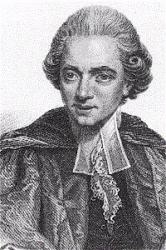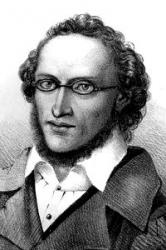
1785 - 1866 Person Name: J. Peirpont, 1785-1866 Author of "O, Thou, to whom in ancient time" in Methodist Hymn and Tune Book Pierpont, John, son of James Pierpont, of Litchfield, Connecticut, was born at Litchfield, April 6, 1785, and educated at Yale College, where he graduated in 1804. After fulfilling engagements as a Tutor in New Haven, and in Charlestown, South Carolina, he was admitted to the Bar in 1812. Shortly after he retired and went into business, only to leave it also, and to pass on to Harvard College as a student in theology. In 1819 he succeeded Dr. Holley as the pastor of the Unitarian congregation in Hollis Street, Boston. At length his zeal against intemperance and slavery caused him to resign his charge in 1840 [sic. 1845] (see Lothrop's Proceedings of an Eccl. Council in the case of the Hollis Street Meeting and the Rev. J. Pierpont). At this date he published his Poems & Hymns, including his anti-slavery and temperance poems and songs. In 1845 he became the pastor of an Unitarian congregation at Troy, New York. This he vacated for another at Medford, Massachusetts, in 1849. That he resigned in 1859. When over 70 years of age he became Chaplain in the United States Army (1862), and was finally a Government clerk in the Treasury Department at Washington. He died suddenly at Medford, Aug. 27, 1866.
Pierpont's publications include Airs of Palestine, 1816, some school books, and his Poems & Hymns, 1840 and 1854. His hymns in common use include:—
1. Another day its course hath run. Evening. Appeared in Hymns for Children, Boston, 1825; in Greenwood's Chapel Liturgy, 1827; and in the author's Poems & Hymns, 1840.
2. Break forth in song, ye trees. Public Thanksgiving. Written for the Second Centennial Celebration of the Settlement of Boston, Sept. 17, 1830, and included in the Poems & Hymns, 1840.
3. Break the bread and pour the wine. Holy Communion. In Harris's Hymns for the Lord's Supper, 1820.
4. Father, while we break the bread. Holy Communion.
5. God Almighty and All-seeing. Greatness of the Father. Contributed to Elias Nason's Congregational Hymn Book, Boston, 1857.
6. God of mercy, do Thou never. Ordination. Written for the Ordination of John B. P. Storer at Walpole, Nov. 15, 1826; and published in the author's Poems, &c, 1840.
7. God of our fathers, in Whose sight. Love of Truth desired. This hymn is composed of st. ix., x. of a hymn written for the Charlestown Centennial, June 17, 1830. In this form it was given in the Boston Hymns of the Spirit, 1864, and others.
8. Gone are those great and good. Burial. Written in 1830. Part of No. 2 above.
9. I cannot make him dead. Gone Before. "A part of an exquisitely touching and beautiful poem of ten stanzas, originally printed in the Monthly Miscellany, Oct. 1840."
10. Let the still air rejoice. Praise.
11. Mighty One, Whose name is Holy. Charitable Institutions. Written for the anniversary of the Howard Benevolent Society, Dec. 1826, and included in the author's Poems, &c, 1840.
12. My [0] God, I thank Thee that the night. Morning. Appeared in his Poems, &c, 1840. In Martineau's Hymns, &c, 1873, it begins "O God, I thank Thee," &c.
13. 0 bow Thine ear, eternal One. Opening of Divine Service. This is dated 1823, but was not included in the author's Poems, &c, 1840, although one of his best productions.
14. 0 Thou to Whom in ancient time. Universal Worship. “Written for the opening of the Independent Congregational Church in Barton Square, Salem, Massachusetts, Dec. 7, 1824," and printed at the close of the sermon preached by Henry Colman on that day. It was given in Pierpont's Poems, &c, 1840, and is found in several collections in Great Britain and America. It is widely known.
15. 0 Thou Who art above all height. Ordination. “Written for the Ordination of Mr. William Ware, as Pastor of the First Congregational Church in New York, Dec. 18, 1821," and included in his Poems, &c, 1840.
16. 0 Thou Who on the whirlwind rides. Dedication of a Place of Worship. Written for the opening of the Seamen's Bethel in Boston, Sept. 11, 1833. Sometimes given as “Thou Who on the," &c.
17. O'er Kedron's stream, and Salem's height. Gethsemane. One of eight hymns contributed to Dr. T. M. Harris's Hymns for the Lord's Supper, 1820. It is in Martineau's Hymns, &c, London, 1873, and others.
18. On this stone, now laid with prayer. Foundation-stone Laying. Written for the laying of the cornerstone of Suffolk Street Chapel, Boston, for the Ministry of the Poor, May 23, 1839.
19. With Thy pure dews and rain. Against Slavery. Written for the African Colonization Society, and included in Cheever's American Common Place Book, 1831. Not in the author's Poems, &c, 1840.
Pierpont's talents as a hymn-writer, as in other fields, were respectable rather than commanding, but so energetically employed as to make their mark. Thus, although he never wrote a single hymn that can be called a great lyric, yet he has attained to a prominent position in American hymnody. [Rev. F. M. Bird, M.A.]
-- John Julian, Dictionary of Hymnology (1907)
John Pierpont


 My Starred Hymns
My Starred Hymns











